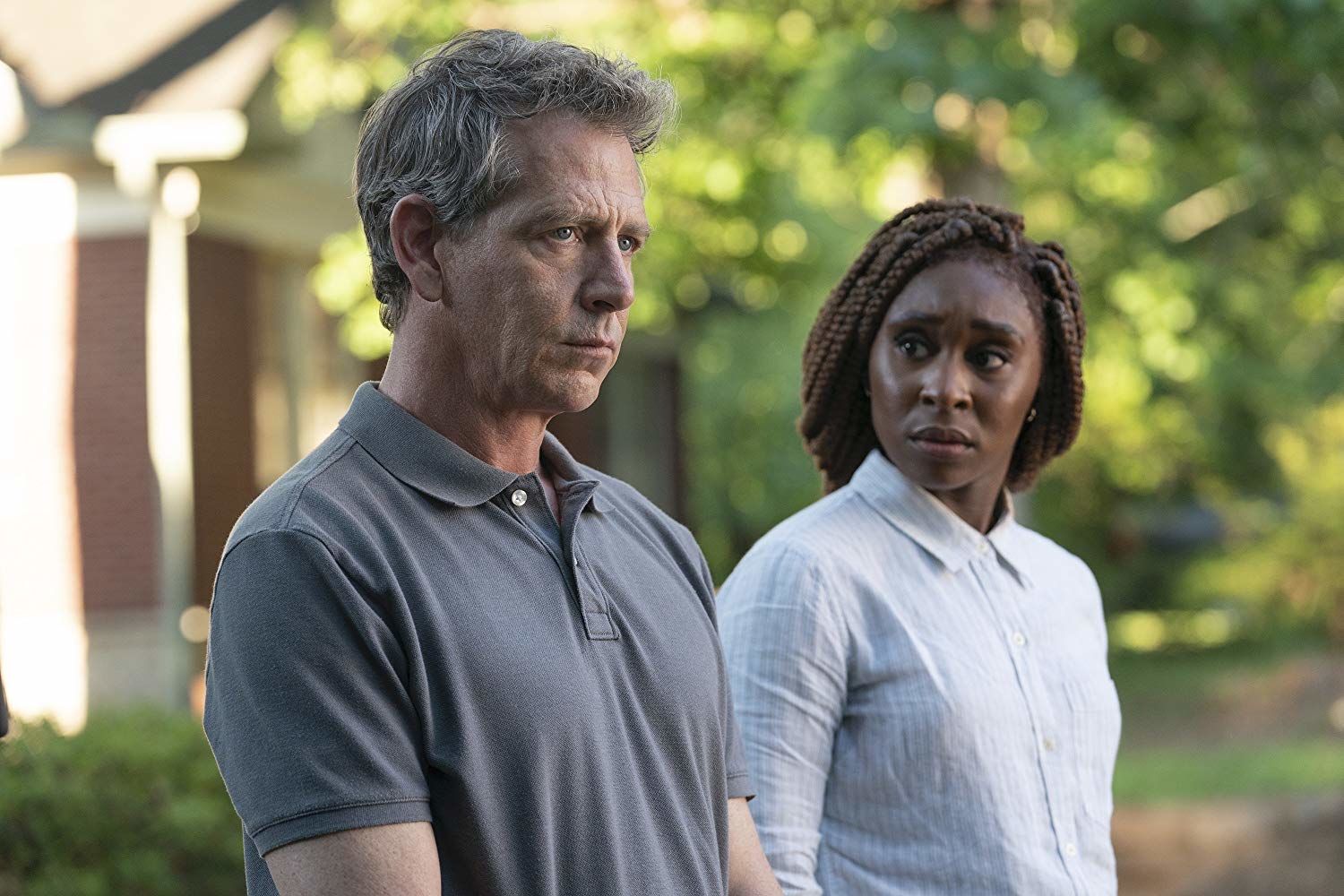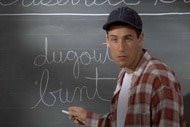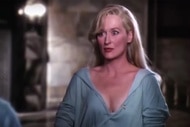Create a free profile to get unlimited access to exclusive videos, sweepstakes, and more!
The crucial story change that makes The Outsider one of the best Stephen King adaptations

Even in a somewhat crowded field of Stephen King adaptations released over the past three years or so, The Outsider has managed to stand out. Over the course of eight episodes so far, the Richard Price-led adaptation of King's 2018 novel has proved a compelling and often haunting vision of the tale of a town torn apart by an unseen supernatural force. It's achieved this thanks to a relentless sense of creeping dread, a tremendous ensemble cast and, perhaps most crucially, a keen sense of what to keep and what to change within King's original narrative.
Though fans don't tend to associate major plot changes with good adaptations of books they love, in the case of The Outsider, change is turning out to be a very good thing. For various reasons, including a need to sustain the tension of the show over the course of 10 hours instead of a film's two, the miniseries has taken plenty of liberties both large and small with King's tale. The core story is still there, it's all still kicked off by the same horrific incident, and most of the characters are quite recognizable, but the show has gone its own way with much of the rest.
That core story concerns a small community in Georgia that's shaken to its core when a local boy turns up brutally murdered, and the prime suspect turns out to be Terry Maitland (Jason Bateman), the local little league coach. Terry is a respected, even beloved, member of his community, and what makes his involvement in the murder particularly horrific is the way in which he barely seemed to try to hide it. His fingerprints, his bite marks, even his DNA are all over the crime scene, almost as if he wanted to be caught. As the town reels in the wake of Terry's arrest, and a small group of investigators try to hone in on what really happened, a strange possibility emerges: What if the thing that killed that boy just wanted everyone to think it was Terry?
We could talk about a lot of the changes in The Outsider adaptation, from the more complex take on the show's monster mythology to the simple change in location (the book takes place in Oklahoma), but one shift stands out as particularly effective. In fact, I'd go so far as to say it's a change that's helped make The Outsider one of the best Stephen King adaptations of the 21st century. If the show sticks the landing, it could end up being one of the best King adaptations ever, because this one key shift adds tremendous emotional context to the story while retaining a classic King touch.
**Spoiler Warning: There are spoilers for The Outsider ahead.**
The shift I'm talking about concerns the character of Ralph Anderson (Ben Mendelsohn), the local detective who leads the charge in arresting Terry Maitland. Ralph is in many ways the same guy on the screen as he is in King's novel: an average guy who takes pride in his work and is overwhelmed by the sheer brutal tragedy of the case he's been called upon to investigate. In both the book and the show, Ralph's emotional and intellectual core is challenged by the Maitland case, and he has to wrestle with conflicting pieces of a puzzle he doesn't ever feel truly comfortable trying to solve, until it becomes clear that something far stranger than a serial killer has crept into his town.
The Maitland case is personal for Ralph in the novel and in the show because Terry Maitland coached Ralph's son Derek back during Derek's little league days. In the book, that's about the only connection Derek has to the story. Ralph has a son who, as far as he knows, could have been one of Terry's victims once upon a time, and the thought of it makes his blood boil. This is also true of the version of Ralph that appears in the series, but even as he starts to doubt Terry Maitland's guilt, Ralph's thoughts keep turning back to his son. Derek Anderson, you see, is alive and away at summer camp in King's novel, but in the TV series, he died of cancer years earlier.
At first, Derek Anderson's death only serves to underline small things about Ralph's character, particularly in the way he responds to Terry's potential guilt. In the beginning of the series, the specter of a killer little league coach feels to Ralph like one more thing he couldn't save his little boy from. Then come the revelations, courtesy of Holly and Ralph's wife Jeannie (played with sublime vulnerability by Mare Winningham), about what Ralph is really dealing with. As memories of the days following Derek's death — during which he drank and Jeannie wouldn't get out of bed — creep back into his head, Ralph is told that he is dealing not with a human killer, but with some kind of "grief eater," a shapeshifting creature that thrives on the destruction of whole families.
Grief, and the way it informs and even distorts the worldviews of the people who know it most intimately, is one of the elements at the heart of The Outsider, and in King's novel it's clear that he wants to highlight the ways in which his central creature is feeding off that inescapable sense of despair. It's present on the page in many ways, from the way it inspires anger in the Maitland family to the way it inspires fear in Ralph's fellow detective Jack Hoskins, who is corrupted by El Coco through the sheer terror he feels over the idea that he could die of skin cancer like his mother. On the page, though, Ralph Anderson is less directly touched by it.
By making Ralph not just a father, but a father who's lost his son and a husband whose marriage still sometimes feels the terrible strain of that loss, The Outsider miniseries amplifies and deepens the idea that a "tear drinker" is stalking the world, feeding off feelings that no rational person can truly hide from. It enhances Ralph's personal connection to the case, but more importantly, it makes his intellectual struggle with the very idea of "El Coco" as a physical entity more tangible and more gripping.
Stephen King stories are full of characters who have to be convinced a monster is real before they can figure out how to beat it, and Ralph Anderson is another addition to that long line. He spends the first eight episodes of The Outsider figuring out first what is behind the violence, then wrestling with how such a thing is possible. In Episode 8, "Foxhead," his struggle finally comes to a head, as Holly compels him to "try harder" to believe in El Coco rather than holding out for a more rational explanation. In another version of this story, that long road to acceptance might grow stale much sooner, but because of Ralph's ever-present connection to his lost son, his mental wrestling match with the concept of El Coco really works.
Ralph, who's made a living out of explaining how and why bad things happen, cannot explain the death of his son. He cannot explain why some people get cancer and die. He can explain why some people commit murder, though, or if he can't do that he can at least get to the how. As a guy just trying to live, he has neatly divided these aspects of grief in two... until Holly and El Coco come along to challenge that notion. El Coco does not fit the framework Ralph has constructed in his brain to deal with his grief. Here is a thing that treats the very concept he's been wrestling with since losing Derek as a resource to be exploited and harvested. Here is a thing that exists outside of the realms of cancer or murder. It's a thing he can't understand, so how on Earth can he fight it?
This philosophical quandary, which Mendelsohn plays to absolute perfection, has added an entirely new layer of dread to The Outsider while never feeling out of place as part of a King story. Grief and loss and wrestling with the inexplicable have long been a part of King's best tales, and now that his battle with the idea of El Coco has come to an end, Ralph can move on to the next step. After all, as King has shown us time and time again, believing monsters are real means you can believe monsters are vulnerable.














